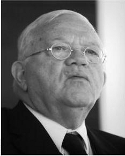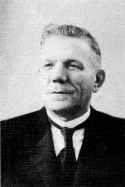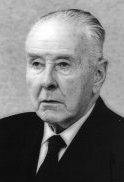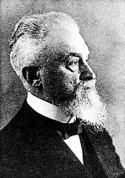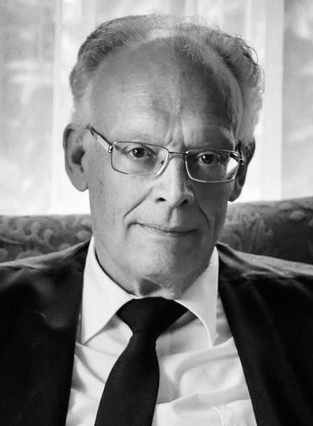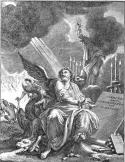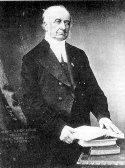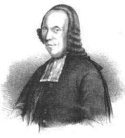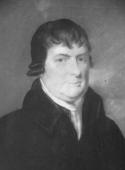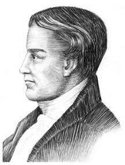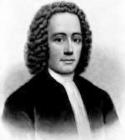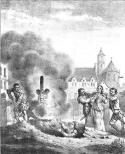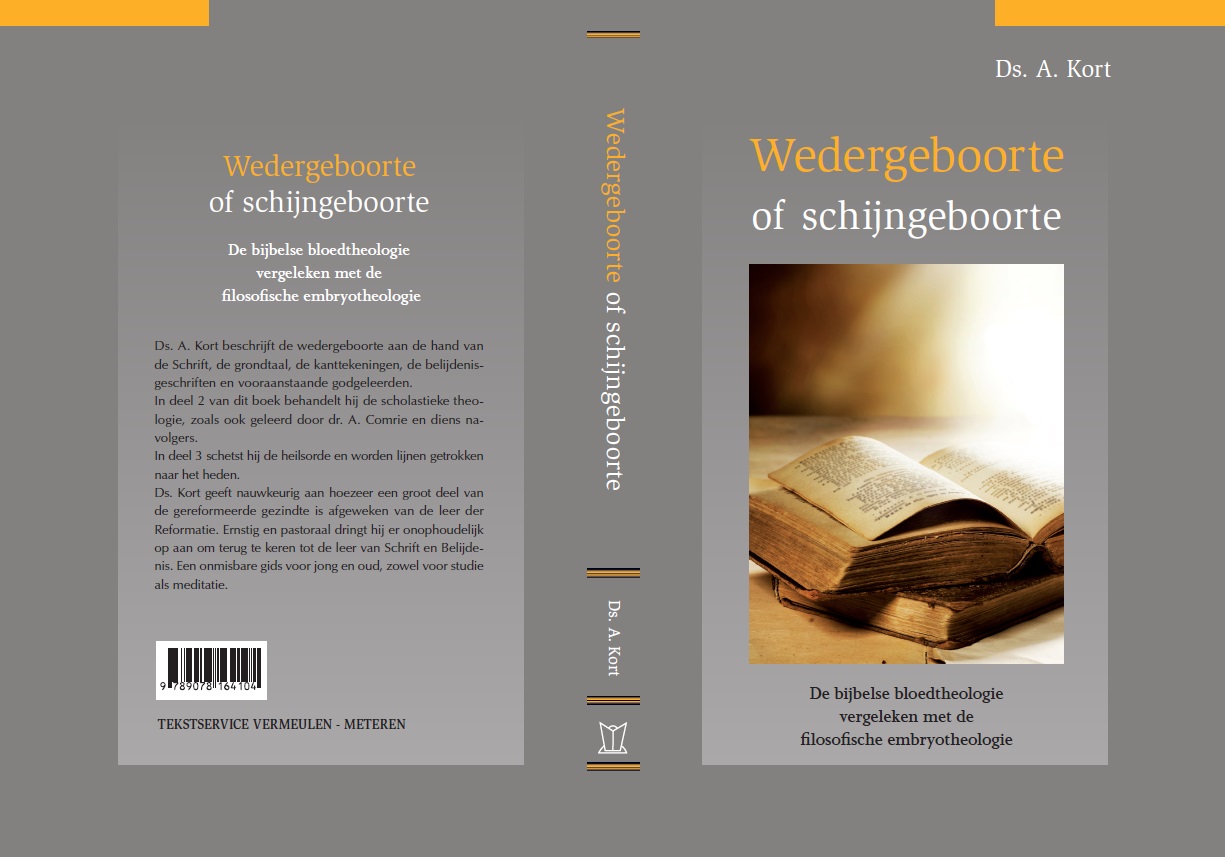Book ds. A. Kort 2012 translated in English
Ds. A. Kort – What is Regeneration? (pdf)
What is Regeneration? – Preface by rev. A. Kort
Chapter 1 – Turmoil about True Regeneration
Chapter 2 – True Regeneration According to Scripture
Chapter 3 – Regeneration According to the Marginal Notes
Chapter 4 – Regeneration According to the Three Forms of Unity
Chapter 5 – Fundamental Concepts of Scripture
Chapter 6 – The Blood Theology
Chapter 7 – Three Jewels of Regeneration
Chapter 8 – Fallacies From the Early Church to the Further Reformation
Chapter 9 – Comrie and the Embryo Philosophy
Chapter 10 – Embryo Doctrine Affects Later Churches
Chapter 11 – Thoughts about the Embryo Philosophy
Chapter 12 – Relationship between Law and Gospel
Chapter 13 – The Order of Salvation in the Embryo Theology
Chapter 14 – The Order of Salvation According to the Blood Theology
Chapter 15 – Preaching of Salvation
Chapter 16 – The Nightly Conversation with Nicodemus
===============================================================
Let us begin by relating a true event. It was in a time of religious tensions, difficulties, and divisions. Ministers traveled country wide in order to get as many supporters behind them as they could, to convince them that they were right, and also to justify the separations. That is what happens in times of crisis. One evening, one of the preachers intensely endeavoured to do so. He was ardent in his sermon, fiery in his movements on the pulpit, fervent in everything. He had, so to speak, met all the requirements for proclaiming a sound sermon. It all was very passionate, and everything was preached as his church demanded to be learned and taught and preached. The text was: “Thy Word is truth.” People were deeply impressed. Such a word, such a sermon, such a testimony, and that all, so biblical and experiential! This was the pinnacle of authenticity! Continually, it resounded through the church: “On the basis of God’s Word, on the basis of God’s Word, on the basis of God’s Word!” What could a man, a church, need more than that true pure truth? After the service, groups of churchgoers remained standing in awe outside the church to wait for the notable preacher. Apparently, there was also need for some discussions in the consistory room, as it took quite some time before the door was opened. An old man, who had not said anything since the service, stood some distance from all the people, waiting for his enthusiastic children. Someone stepped up to him and asked him, “And what about you; what do you think? Did not the minister preached exceptionally well?”
The man replied, “Yes, he has spoken exceptionally, extraordinarily, truly very impressively. He was, he only had . . . the wrong text!”
Puzzled, they asked, “Wrong text? He has explained it all so preciously and according to the Scriptures!”
The man said, “Yet, he did have the wrong text! In fact, he had no text at all, because he has spoken about the words, ‘My church has the truth.’ That text is not in the Bible, so all his preaching does not tell me so much. Actually, it doesn’t tell me anything.”
“My church has the truth.” I think this assertion is persistent. Even if there is no separation or schism. You regularly read in some church bulletins, “We know it; we have it; we can do it.” And even if it is not said with so many words, there still resounds a “woe unto you” if you hold a different opinion. This is one of the big problems of our days: “My minister has the truth! My elder can’t be wrong, and God’s people also think that way!” But chances are that it is not the truth. One question often instantly silences them, “Where do you find your teachings in the Bible, in the marginal notes, in the Forms of Unity, with the church fathers or the Reformers?” They cannot answer that question.
In the past years, I have often noticed with dismay that the knowledge of the most fundamental parts of the doctrine has almost disappeared in the Netherlands. In my sermons, I try to be as clear as possible, but many people really no longer know what I’m talking about when I preach about our reconciliation through Christ’s satisfaction. It is so sad to say, but members, also consistory members, and even ministers in our denominations, generally no longer know what true regeneration is. Self-criticism is not the strongest character trait of the experiential reformed. All too easily, we act as if we have the truth. We have great pretensions, beautiful names, glorious aid organizations, but a chill may well go through the marrow of our bones, because we remain far below par. I think we need to learn to change our tune.
Regularly, I get questions why I warn against the embryo theology. I cannot keep explaining in every sermon why I am so strongly opposed to this. Church bulletins also do not provide enough space to pay due attention to this matter. Therefore, I have decided to do this in the form of a book. At the same time, I raised this issue in a sermon at Geldermalsen. As a result of that, the publisher J.M. Vermeulen of Meteren asked me to further elaborate on the differences between the Blood and the embryo theology and to publish it in the form of a book. His request caused me to immediately go ahead with my plan. To be clear, I do not write this book on behalf of the Old Reformed Churches in the Netherlands, but in personal capacity. It is a private initiative, “for necessity is laid upon me.” ( 1 Corinthians 9:16 )
I can look back on the good collaboration with this publisher. He has not only given me the opportunity of publishing this book, but he also gave me a lot of good advice before and during writing. He was often ahead of me during my work, and provided new material as I was still writing. He did most of the work of compiling and correcting. We like to give him a very warm thank you here. I also thank Ds. W.J. van den Brink of Ede for providing his thesis, About the Justification, and also for verifying my conclusions from his writing which are included in this book. He has richly informed us, and hence did us a great service.
The main point of this book is the issue of regeneration explained as much as possible from the Scriptures, the marginal notes, the Forms of Unity, and the Reformers. The approach to the Scriptures in our days is often dominated by own theological fronts, by leaders in and of church denominations, so that we are no longer capable of listening to Scripture with an open mind. Unbiblical theological expressions therefore start to lead a life of their own, overgrow the Bible and the life of faith, and destroy the churches.
Once there is a schism, it is rarely ever restored. Leaders in churches do not want to give up their theologies, philosophies, and ideas because it has become a part of their identity. They proclaim their own views as the most pure, the most reformed, but often they do not even know the Reformed theology; they just imitate others and also, do not do their own research. The Bible and the old fathers are made subservient to the different opinions of people: everyone only takes what suits him, not considering the context. They want to prove that they are right! Correction of opinions would mean loss of face, and that is not what the church leaders are interested in. Is this not something we should be ashamed of, ministers? Are we not just like the Roman Catholics, who hold on to certain doctrines which are not scriptural at all? Yes, indeed, we are just like them! Effortlessly, I could enumerate dozens of articles, especially from church bulletins, which deal with the issue of regeneration. These are mainly from the last century, but what they say on this subject is not scriptural; for me, they are actually worthless in regards to this issue. My basis is the Holy Scriptures. It is upon this reliable Word of God, that I want to lean. For the exegesis, I prefer to consult the original languages. In this book, I restrict myself to the commentary of Calvin, when needed. There is no better exegete. You can read and examine it for yourself. If you can, also read from the church fathers.
Why read from the church fathers? After the Scriptures, they are the earliest sources of the Christian faith, subsequent to the apostles, the direct witnesses of Jesus Christ. Because man in our days often uses Scripture to confirm their own quibbles, it is good that we carefully read from the church fathers. We will mention some of them, for example, the well-known Augustine, the most famous baptismal student of Ambrose. Ambrose was bishop of Milan from the year 374 until his death in 397. Along with Jerome of Bethlehem (347-420)1, Augustine of Hippo Regius (354-430) and Gregory the Great of Rome (540-604), he was one of the four major church fathers of the west. Read the sermons of Ambrose and Augustine, because they are of rich and valuable content.2 Please, do so! Apparently, for many, the words of Scripture do not carry enough weight anymore. No longer do they want to search God’s Word, and the marginal notes, even less so. Scripture is no longer compared with Scripture, but with all kinds of writers, of whom, most frequently, the latter church leaders are decisive. That is one of the biggest problems of our days. Many have introduced what was totally rejected in the days of the Reformation, that is, the way of reading the Scriptures through their own darkened minds, from their own perspectives. Upon this shaky foundation, man considers his own church the only true church. They have a disregard for other churches. And so everyone strives for his own church, which has strayed far from the truth. They don’t verbalize it, but with their acts they say, “This is what we are, and this is how we do it.” But Kohlbrugge said, “This is God, and this is how He does it.”
Thus, this book is written according to the language of the Scriptures, the marginal notes, the Forms of Unity, and the great lights of the Reformation. I will refer to those in order to examine if we, the so-called experiential reformed people, make a straight path. Occasionally, I will give citations of later ministers, mainly for the sake of illustration. In that way, we may discern what is according to tradition and what is according to Scripture. That way, we also avoid all kinds of unbiblical distinctions that have more to do with thinking and with philosophy than with faith. However, some Puritan writers are mentioned, especially to confirm that they also stood for this doctrine, but we must not place their views above those of the Reformers. We also like to mention something about the Further Reformation, because the influence of scholasticism, which led to fallacies in the doctrines, was then already noticable. Amongst the old fathers of the Further Reformation, Comrie takes a special place. Discussion of his doctrine is the content of several chapters. This amount was necessary, because there are now several churches that have embraced the so-called embryo theology, which has its roots in the teachings of Comrie. These churches have fundamentally deviated from the doctrine of the Reformation.
The outline of this book is very simple. In part 1, I explain to you the Blood theology; in part 2, the scholastic theology; and in part 3, the two are compared and parallel lines drawn to the present. It is obviously not an exhaustive exposition on this subject. It only gives some guidelines to help regain an understanding of the doctrine of the Reformers and thereby to help recognize the heresies of today. It is my duty and calling to refute the embryo theology as clearly as possible. With the help of God’s Spirit and the truth of God’s Word, this will not be a burden to me. I will definitely not hide the facts. I would not be able and willing to do so. Besides that, in concealing facts, how would I justify myself before my God and King? It grieves me to see with how much emphasis the embryo theology has been introduced into so many congregations. We hear from young people how this teaching is imposed upon them in catechism classes, marriage counsels, and baptism instructions. Sometimes young people say to me, “This cannot be so, minister! It’s not the truth!” Ministers are not afraid to say that Calvin teaches us such things. In addition, even terms like “the old truth”, “the pure confession”, etc are used. I have noticed that this doctrine has been indiscriminately listened to and has been accepted for decades already. Thus, there is an urgent need to prove that it is not “the old truth”. I will therefore, in this my writing and my preaching, be just as clear as those who have introduced and preached the embryo theology. With emphasis, I state that my writing is not directed against individual ministers, but only against their teachings. We therefore need to completely separate matters and persons from each other. Without a doubt, they have said and written good things in their works, but on this issue of the regeneration, they clearly and fundamentally differ from our fathers. That does not mean peace at all costs, because we must stand up and testify of God’s truth and strive against the fallacies. But in the vessel, love must not be missing. Love builds up. We need to show a concern for each other’s salvation. May God bless this book to the salvation of our immortal souls.
Krimpen aan den IJssel, summer 2012
Ds. A. Kort
Minister of the Old Reformed Churches in the Netherlands



